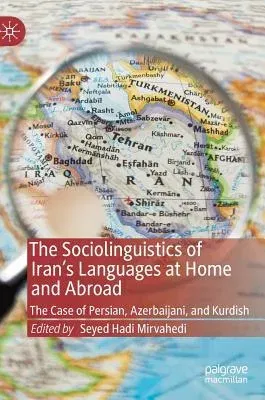The Sociolinguistics of Iran's Languages at Home and Abroad: The Case of Persian, Azerbaijani, and Kurdish (2019)Hardcover - 2019, 10 July 2019

Qty
1
Turbo
Ships in 2 - 3 days
In Stock
Free Delivery
Cash on Delivery
15 Days
Free Returns
Secure Checkout

Print Length
294 pages
Language
English
Publisher
Palgrave MacMillan
Date Published
10 Jul 2019
ISBN-10
3030196046
ISBN-13
9783030196042
Description
Product Details
Book Edition:
2019
Book Format:
Hardcover
Country of Origin:
NL
Date Published:
10 July 2019
Dimensions:
21.01 x
14.81 x
1.91 cm
ISBN-10:
3030196046
ISBN-13:
9783030196042
Language:
English
Location:
Cham
Pages:
294
Publisher:
Weight:
526.17 gm